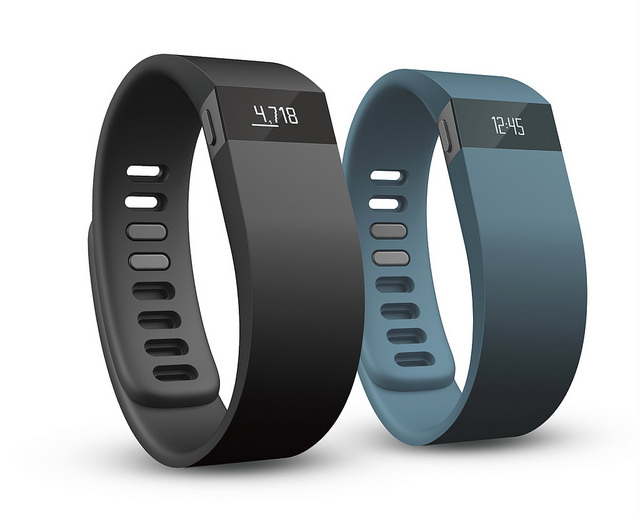Step by step, bit by Fitbit, self-improvement becomes a losing game
How are those New Year’s resolutions going?
If you made the most common one – to exercise more – we have reached the time of year when our collective resolve starts to waiver.
Most people would say that’s a bad thing. In our house, however, I’m secretly hoping it will happen.
My partner and I bought Fitbits for ourselves in December, which looks like a simple strap bracelet but is one of the many wireless activity trackers on the market. These devices keep tabs on the number of steps you’ve walked, stairs you’ve climbed, calories you’ve burned and even how well you slept. It’s a device more of us could stand to wear; Michigan is the 11th-fattest state in the nation, with a 31.5 percent adult obesity rate that seems to climb every year.
The Fitbit is a brilliantly simple concept and motivator. I love it, actually. I like seeing my daily progress, and it serves as a reminder to get up from my desk several times a day to walk a lap through my building. It pushes me to get on the treadmill again. All good things.
For my partner, however, it’s a contest to win every minute of every day. She’s competitive by nature (she won’t do yoga because “you can’t win at yoga”), so the introduction of the Fitbit into her life has fueled her obsession with winning.
You can’t “win” at Fitbit, you say? Oh, yes you can. There are challenges. You can challenge yourself (my preference) or you can participate in a group challenge. She did that last week, and it was all-consuming.
She has what amounts to a desk job. She walks a fair bit at the office, but a lot of her work is done on the computer. The colleagues she competed with aren’t as desk-bound. One works in a hospital. A big hospital. Where he walks around all day. Where he routinely, in the course of just his work day, logs 15,000-plus steps. That didn’t count what he added on his own time.
So Betsy was moving at every available opportunity. Making dinner? Running in place. Playing a game with friends? Running in place. Watching a movie? Running in place. You get the picture.
She worked and worked and worked to keep her step count up every day. She was averaging 15,000 steps a day. On the final day she logged more than 25,000 steps. She did 88,000 in just five days and still lost by 1,300 steps.
“I feel like Mitt Romney,” she said, shoulders slumped, at the end of the challenge.
“Why? Because you keep running and running no matter what?” I asked.
“No, because I lost and I’m really bummed.”
Although I was getting an up-close look at only her participation, I could guess that there were similar obsessive traits in the other competitors, based on when they were logging their steps. They were running at 5 a.m. and 11:30 p.m. They were walking laps around their dining room tables. They were jumping up and down while having drinks with their friends, for crying out loud.
That’s great, you could argue. Movement and fitness and better health are all terrific goals. But how sustainable is this kind of activity?
So far, the answer in our house is “one week.” After the work-week challenge ended, Betsy announced she would not be participating the next week. She’d still be pushing herself, still logging miles on the treadmill, still aiming for 15,000 steps a day, but not competing with her co-workers.
They replaced her with another colleague in the next challenge – one who is a runner and was already ahead of the pack of eight on day one.
Challenging ourselves feels much saner, somehow. And it’s easier on our floorboards.
See what new members are saying about why they donated to Bridge Michigan:
- “In order for this information to be accurate and unbiased it must be underwritten by its readers, not by special interests.” - Larry S.
- “Not many other media sources report on the topics Bridge does.” - Susan B.
- “Your journalism is outstanding and rare these days.” - Mark S.
If you want to ensure the future of nonpartisan, nonprofit Michigan journalism, please become a member today. You, too, will be asked why you donated and maybe we'll feature your quote next time!


 If the gizmo counts, then some people can get a higher count than others. What could go wrong? (Courtesy photo)
If the gizmo counts, then some people can get a higher count than others. What could go wrong? (Courtesy photo)